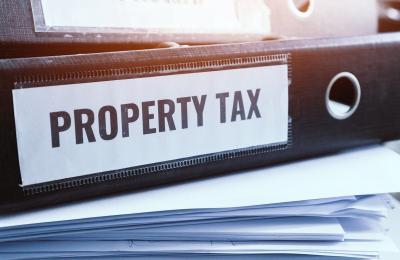Discover Your Dream Home with Our Latest Listings and Personalized Services!
Join Us for Exclusive Open House Events This Weekend and Find Your Perfect Home!
Explore Our Exciting New Property Listings Now Available in Prime Locations!
Take Advantage of Limited-Time Offers on Luxury Homes with Stunning Features!
The Ultimate Guide to Buying a Vacation Home

Buying a vacation home is an exciting investment that offers a getaway from your regular routine, potential rental income, and long-term financial benefits. However, purchasing a vacation property requires careful consideration and planning. From choosing the right location to understanding financing options, here’s a comprehensive guide to help you navigate the process of buying your ideal vacation home.
1. Assess Your Needs and Goals
Before you start looking at vacation homes, it’s crucial to define your goals and needs. Consider the following factors:
- Usage Frequency: How often will you use the property? If you plan to use it frequently, proximity to your primary residence may be important. For a property you visit only a few times a year, you might be willing to travel farther.
- Rental Plans: Many buyers purchase vacation homes as rental properties to generate income. This decision will influence your choice of location, the type of property, and how much you need to spend on upkeep and maintenance. Keep in mind the cash flow from short-term rentals can be significant.
- Property Type: Decide whether you want a beach house, a cabin in the mountains, or a condo in the city. Your personal preferences will help narrow down your search.

2. Location, Location, Location
The location of your vacation home is one of the most important factors in determining its value, desirability, and potential rental income. Here are some key considerations when choosing a location:
- Accessibility: Choose a location that’s accessible year-round, especially if you plan to visit frequently. You want to be able to get there easily, whether by car or plane.
- Tourist Demand: If you plan to rent out the property, look for areas with high demand for short-term rentals. Popular vacation spots like beaches, ski resorts, and tourist-friendly cities tend to offer good rental income potential.
- Local Amenities and Attractions: Think about what you enjoy and whether the area offers the amenities that align with your interests. Look for nearby restaurants, shops, outdoor activities, and entertainment options.

3. Understand the Costs Involved
When buying a vacation home, it’s essential to account for both the upfront and ongoing costs. These can include:
- Down Payment: The down payment for a vacation home is typically higher than for a primary residence. Expect to pay at least 10% to 20% of the home’s purchase price.
- Mortgage Payments: If you're financing the purchase, your monthly payments could be higher than for a traditional mortgage. Interest rates may also be higher for a second home or investment property.
- Property Taxes: Vacation homes are subject to property taxes, which can vary by location. Some areas with high tourist traffic may have higher taxes or additional fees.
- Insurance: Vacation homes may require special insurance coverage, such as flood insurance or renters’ insurance, depending on the area’s risks.
- Maintenance and Repairs: A vacation home may need more frequent upkeep, especially if it sits unused for long periods. Regular maintenance is essential to keep it in good condition, whether you're renting it out or simply using it as a personal retreat.

4. Research Financing Options
Financing a vacation home can be different from purchasing a primary residence. Lenders often require larger down payments and higher credit scores. Here’s a look at some common options:
- Conventional Loans: You can secure a fixed-rate mortgage or an adjustable-rate mortgage (ARM) for a vacation home, but you’ll likely need a larger down payment (often 20% or more) and a solid credit score. Consider the life of the loan and how interest rates may change over time.
- Home Equity Loan or Line of Credit: If you have significant equity in your home, you may be able to use a home equity loan or line of credit to finance your vacation home. Financing work with your current property can help with a loan amount.
- Cash Purchase: Some buyers choose to pay in cash to avoid the complexity of financing. This can be a good option if you have the funds available and want to avoid paying interest on a loan.
5. Consider Rental Potential
If you're considering renting out your vacation home when you're not using it, you'll want to ensure it's in a high-demand area with solid rental potential. Some factors to keep in mind include:
- Local Laws and Regulations: Some areas have strict regulations about short-term rentals (e.g., Airbnb). Make sure to check with local authorities to ensure you can legally rent out your vacation home.
- Property Management: If you’re not able to manage the property yourself, you may need to hire a property management company to handle bookings, maintenance, and guest services.
- Rental Income Projections: Estimate the rental income you can expect based on the location, the time of year, and similar properties in the area. This will help you determine whether the property makes financial sense as a rental investment.

6. Hire a Real Estate Agent with Local Expertise
Working with a real estate agent who specializes in vacation homes and has knowledge of the local market can help you find the right property. They can guide you through the process of buying a second home and provide insight into areas with high demand for vacation homes.
- Market Knowledge: A local agent will know which neighborhoods are trending and which areas offer the best potential for rental income.
- Negotiation Skills: An experienced agent can help you negotiate the best deal and ensure that the terms of the sale are favorable.
- Access to Listings: Agents often have access to properties before they hit the public market, giving you an edge in a competitive market.

7. Inspect the Property Thoroughly
Before finalizing your purchase, it’s essential to have the vacation home professionally inspected. Vacation homes are often older and may require repairs or updates.
- Property Condition: Ensure that the home is structurally sound, with no major issues related to plumbing, electrical, or foundation.
- Seasonal Concerns: If the home is located in an area with extreme weather (e.g., coastal regions or mountain retreats), ask the inspector to check for weather-related damage, such as water damage or roof wear and tear.
8. Plan for the Future
When buying a vacation home, think about your long-term goals. How do you see this property fitting into your life in the future? Consider the following:
- Resale Value: Will the property hold or increase in value over time? Pay attention to the area’s real estate trends and consider how easy it would be to sell the property in the future if needed.
- Personal Enjoyment: Will you still enjoy the property in years to come, or will it become a burden? Make sure the home is a place you can see yourself visiting and enjoying for many years.
Buying a vacation home is a major decision that requires careful thought and planning. By assessing your goals, researching locations, understanding costs, and exploring financing options such as FHA loans, ARM loans, or land contracts, you can make an informed choice and find the perfect vacation home for your needs. Whether you're looking for a personal retreat or a profitable investment property, this guide will help you navigate the process and achieve your dream of owning a vacation home.
Make the right decisions to maximize your equity in your home and improve your cash flow with a fixed-rate mortgage or other suitable financing options. Be mindful of monthly payments, and ensure you have a strategy for financing work and managing the payment of less than 20% down payment where applicable.
News insight
 Dec 15, 2024
Dec 15, 2024How Does Creative Financing Work in Real Estate? A Simple Guide for Buyers and Sellers
Buying a home without a large down payment is possible through creative financing options like "Subj...
 Dec 10, 2024
Dec 10, 2024Understanding Property Taxes and How to Lower Them
Property taxes in the U.S. are based on your home's assessed value and local tax rates, funding serv...
 Dec 09, 2024
Dec 09, 2024Renovation Ideas to Increase Your Home’s Value
Renting out your property can generate passive income, but requires careful planning. To succeed, en...


